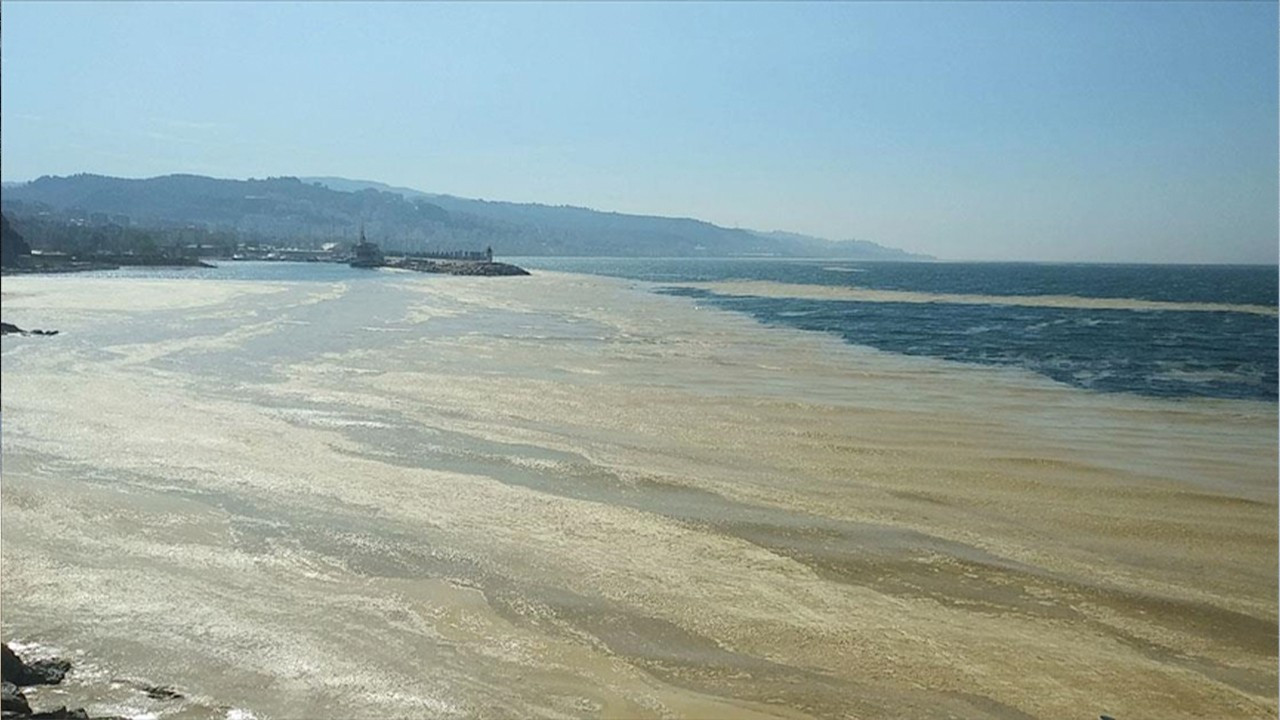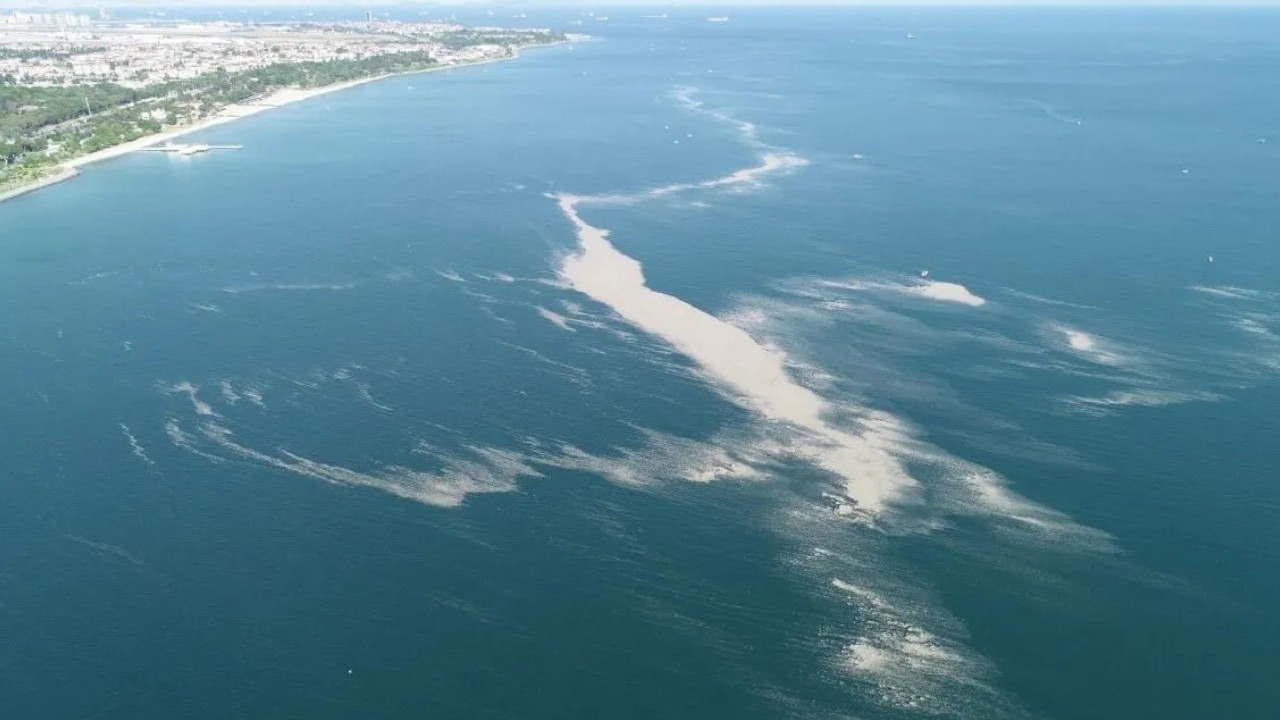'Sea snot' outbreak in Marmara Sea doubles in size in five days
Satellite images analyzed by a Turkish university have shown that the amount of marine mucilage, also known as “sea snot,” in the Marmara Sea has doubled in just five days. Prof. Taşkın Kavzoğlu said that the mucilage was covering an area of 50 square kilometers on May 14, whereas images taken five days later showed an expansion to 100 square kilometers.
Duvar English
Gebze Technical University has launched a research to determine the extent of the spread of the marine mucilage, also known as “sea snot,” through the Marmara Sea.
Taşkın Kavzoğlu, a professor at the university's Geomatics Engineering Faculty, said that satellite images had shown that the “sea snot” outbreak doubled in size in just five days from May 14 to 19.
“On May 14, it was covering an area of 50 square kilometers. We are conducting a measure every five days and have seen that this has been growing in a very serious way. We call it a 'sea snot explosion.' It has then spread to an area of 100 square kilometers,” Kavzoğlu was quoted as saying by state-run Anadolu Agency on June 12.
The professor also said that their research has measured a higher sea temperature in areas that have been plagued with the mucilage.
“We have seen that the Marmara Sea's middle areas have a temperature of 13.5-14 degrees whereas areas with mucilage see 17.5 degrees. Maybe, this has increased further, because images from June are still being processed,” he said.
“The water has reached approximately a temperature of 18 degrees. As it heats up, it consumes oxygen, multiplies and spreads downwards. And this will pose a great threat to living things,” he warned.
Scientists say climate change and pollution have contributed to the proliferation of the substance, which contains a wide variety of microorganisms and can flourish when nutrient-rich sewage flows into seawater.
On June 8, the Turkish government vowed to save the Marmara Sea by launching a disaster management program meant to clean up the outbreak.
Environment Minister Murat Kurum said 25 sea surface-cleaning and barrier-laying boats, as well as 18 other vessels, were working to prevent the spread of the mucilage.
Illegal fishing and "ghost" nets would be halted and Turkey would declare Marmara a protected area by the end of 2021, he said.

 The collapse of the Marmara SeaWorld
The collapse of the Marmara SeaWorld Turkish parliament establishes commission to investigate 'sea snot' outbreakDomestic
Turkish parliament establishes commission to investigate 'sea snot' outbreakDomestic